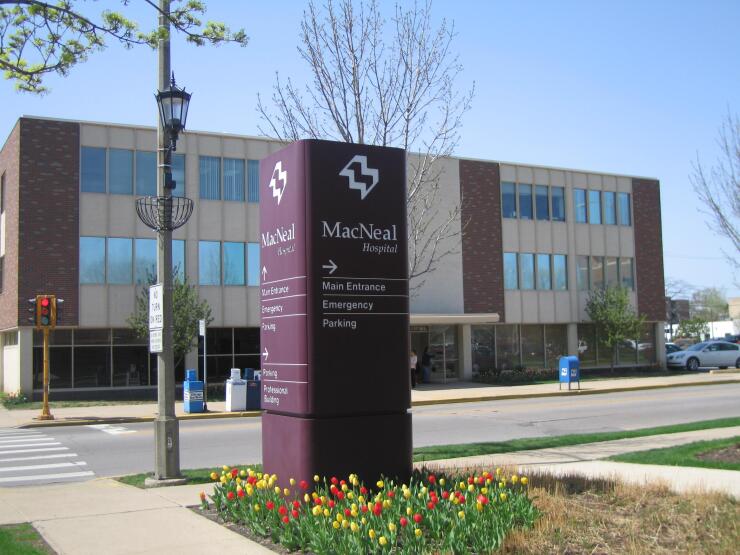Michigan-based Trinity Health System plans to price $1.7 billion of new money and refunding bonds on Wednesday, the bulk of which will be taxable.
Proceeds from up to $1.4 billion of taxable debt sold through the Michigan will advance refund taxable bonds and potentially corporate debt.

The system also plans to sell $300 million of tax-exempt bonds issued through Franklin County, Ohio, that will be used to reimburse the hospital chain for various capital projects.
“The issuance of the taxable bonds which is for advance refunding purposes only is quite sensitive to interest rates,” Dina Richard, senior vice president, treasury and chief investment officer at Trinity Health, said in an investor presentation. “Depending on the relative savings available on the day of the pricing the size of the issue may vary materially from the size shown on the preliminary statement.”
The health system will only consider refinancing opportunities which would reduce interest costs and provide significant savings, Richard said and added that the issuance would not exceed $1.4 billion.
Richard said that the health system additionally expects to refund up to $300 million of outstanding privately placed bonds issued through the Michigan Finance Authority in 2013 and 2014 to fixed-rate bonds.
Goldman Sachs and Bank of America Merrill Lynch are co-senior managers. Cabrera Capital Markets LLC and Loop Capital Markets are co-managers.
Melio & Co. is the advisor and Hawkins Delafield & Wood LLP is bond counsel.
Moody’s Investors Service affirmed its Aa3 rating ahead of the bond sale. S&P Global Ratings and Fitch Ratings both affirmed their A-minus ratings on the bonds. The outlook for all three is stable. The system has roughly $6 billion in bonds outstanding.
"Supporting the rating are Trinity Health's significant size, scale, and diversity with total operating revenue approaching $20 billion and a presence in 22 states nationally," said S&P credit analyst Cynthia Keller.
“The stable outlook reflects our expectation that Trinity will meet budget and financial performance will exhibit improvement in fiscal 2020 and that the organization’s revenue diversity among different markets will continue to provide operating stability,” Moody’s stated in its report.
Moody’s noted in its report that the systems absolute size and material geographic diversification of revenue and cash flow across multiple distinct markets important in fiscal 2019 as Trinity’s third largest market, Mount Carmel, Ohio, experienced material deterioration in operating performance that was partly offset by stronger performance in other large markets such as New England and Chicago.
The Mount Carmel system experienced a significant $102 million decline in operating income that was tied to a Legionella outbreak that caused a material decline in patient volume.
Trinity’s debt structure is about 76% fixed rate and 24% variable rate. The variable-rate portion is down from 33% a few years ago, according to Richard.
“Our strong credit ratings allow for well-diversified and liquid facilities,” Richard said. “We have spent the last few years improving our debt portfolio by reducing risk and lowering our overall interest costs.”
Richard said that the system maintains well-established relationships with 11 highly rated bank participants for direct placements and its revolving credit agreements. Renewal dates are staggered across product type and bank with the next renewals in October and December 2020.
“Our $900 million liquidity line and our $200 million working capital line are strong and nothing is outstanding at this time,” she said.
During the first quarter of fiscal 2020, which ended Sept. 30, Trinity reported operating revenue of $4.8 billion, a 1.8% increase over the same period of the year prior. Operating expenses climbed 1.7% year over year to $4.7 billion.
Trinity ended the first quarter of fiscal 2020 with operating income of $94 million, up from $87 million in the first quarter of last year.
The system spent $177 million in acquisitions in fiscal 2018 which is mostly attributed to its MacNeal Hospital acquisition by the system’s Chicago-based Loyola Medicine. MacNeal is near Trinity’s Loyola Medicine teaching hospital, which should help Trinity improve market share and rationalize some services in that market.
Mike Slubowski, president and CEO of Trinity, said in the investor presentation that the system plans to opportunistically grow its acquisitions and to continue to expand insurance presence through the expansion of its Medicaid Advantage product called Medigold.
“We are not really excited about taking on folks that are taking on water and are far up the desperation curb,” Slubowski said. “The only time we would do that is if we can see the immediate value add in a short period of time.”





